 boundary
boundaryWhat is a limitation?
Thermodynamics | Ecolacy | Culture | Ecological law | dialectic of inquiry |Numeracy | impotency | 3 universal forces
"Nothing lasts" seems to be a worthy belief to reject. By reminding us of our own mortality the statement is a stark reminder that we are not in control. Instead we seem to be in a stream, and worse, yet, we appear to be governed by forces over which we have no control. Thus for several hundred years many people have chosen to ignore the obvious, we live at the sufferance of something else, something bigger, something incomprehensible."
By asking "What is a limit?" We, at least, may entertain the capacity to understand that:
- nothing grows forever,
- the larger something grows the more constraints also grow,
- it takes time to correct errors,
- you can't get something for nothing,
- every achievement has a consequence,
- all side-effects are effects,
- any system can be understood only by applying the concept of feedback.
Tragedy of the Commons | Ecological Literacy | Folly as a Limit
Thermodynamics | Ecolacy | Culture | Ecological law | dialectic of inquiry |Numeracy | impotency | 3 universal forces
These limits are based on laws of thermodynamics:
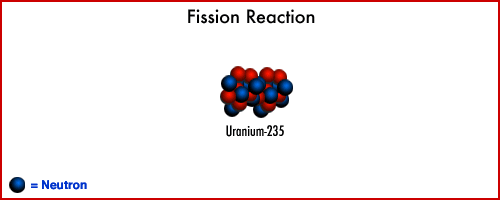 The amount of available energy can neither be increased nor
decreased.
The amount of available energy can neither be increased nor
decreased.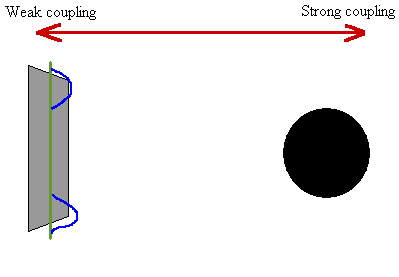
![]()
Is a limit to our activity the amount of energy we generate?
"Because energy is needed to support all life, population problems are inextricably tied in with the properties of energy."
(40)
"The second law of thermodynamics holds, I think, the supreme position among the laws of Nature." Eddington
"Science is not about words, but it must be explained with words–which
are never wholly satisfactory."
G. Hardin, Living within Limits,
What is the relation among, force, power and energy?
Thermodynamics | Ecolacy | Culture | Ecological law | dialectic of inquiry |Numeracy | impotency | 3 universal forces
The Threefold Way: literacy, numeracy, & ecolacy.
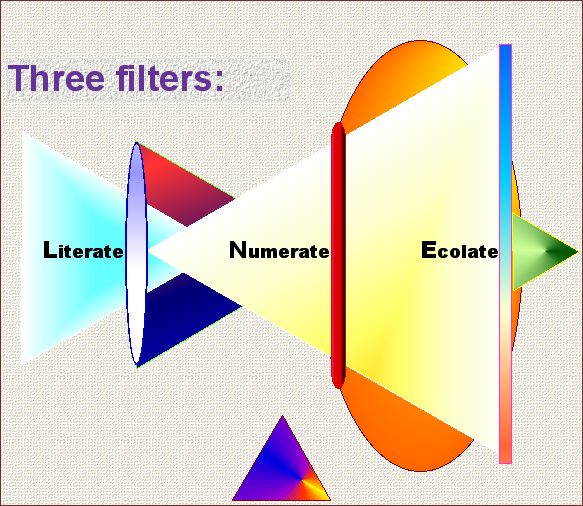
An ecolate approach to regional planning, health or justice.
Ecolacy as practicing adaptive management.
Ecolate approach to problem solving for social justice.
Thermodynamics | Ecolacy | Culture | Ecological law | dialectic of inquiry |Numeracy | impotency | 3 universal forces
Culture is defined two ways: literal & figurative?
The totality of human creations vs. the best we create.
From simple plant materials the American woman weaves a basket that holds the materials needed for her life.
The First Law of Ecology is : “We can never do merely one thing.”
“Abusus non tollit usum.” “the abuse of a thing does not bar its use.”
“Prudence dictates that we compare the advantages and disadvantages of
all proposed courses of action [and inaction], choosing the one that, on the
balance is quantitatively best.”
(65)
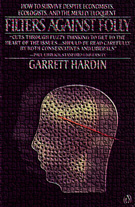 The
folly of mistaking material for mental progress is widespread.
The
folly of mistaking material for mental progress is widespread.
“Nature has assigned no limit to the perfecting of the human faculties . . . the perfectibility of man is truly indefinite.”
Marquis de Condorcet (1789)
“Anything we can dream of, we can invent. Anything we can invent, we are required to use.”
Thermodynamics | Ecolacy | Culture | Ecological law | dialectic of inquiry |Numeracy | impotency | 3 universal forces
“Quis custodiet ipsos custodes?”
“Traditional language often throws a smokescreen over problems:
1) Waste is a mental construct, not an objective reality.
2) Objectively speaking, there are no side effects.
3) There is no away to throw to.
4) All so called ‘pesticides’ are, in reality, biocides, substances that kill life.
Interventions always need to be audited & evaluated with three
filters.
Significant interventions in the world are always interventions in systems,
of which three kinds can be usefully distinguished:
Organisms: a fantastically complicated system of cells, tissues, organs. . . .
Systems of organisms: our well being depends on the survival in good health of many other kinds of plants, animals, and microorganisms.Political systems: preservation, conservation, allocation, or political economy
“Even with the ecological focus on man (as it is in “human ecology”), the bearing of other living things on the welfare of human beings is not neglected (as it all too often is in economics).”
“At high rates of interest the present value of the distant future effectively
vanishes.”
74
“A culture of poverty is one in which the future is discounted -- at a very high rate.”
78
Garrett Hardin, Filters Against Folly, How to Survive..,New York: Penguin Books, 1987.
Thermodynamics | Ecolacy | Culture | Ecological law | dialectic of inquiry |Numeracy | impotency | 3 universal forces
Now compare that summary to this statement by Hardin
(1959) in Nature and Man’s Fate:
“A. N. Whitehead has said, ‘Seek simplicity; and distrust it.’ It is difficult to imagine a more fruitful guide for scientific research. To see anything at all, we must abstract a few elements from the infinite totality; but when we do, we undoubtedly warp the truth. Therefore we must secondly -- and it must be secondly, and not at first, -- we must secondly turn a suspicious eye on the simplicity we have found and see in what way it is false to the facts.…Such is the dialectic of intellectual inquiry.”(72)
Numerate proficiency is a doorway to another view of reality:
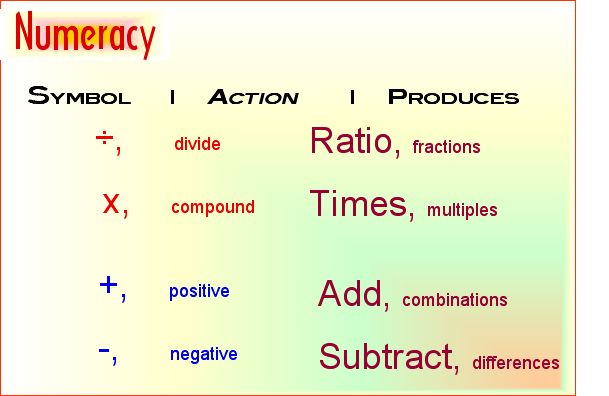
Numeracy, the ability to understand and work with numbers; for example ratios, percentages, and rates of change.
Thermodynamics | Ecolacy | Culture | Ecological law | dialectic of inquiry |Numeracy | impotency | 3 universal forces
You cannot square a circle.
In living creatures any increases in the surface area occur as a square of the cubic increases in the volume of the organism.
No tree grows to the sky.
To every action there is an equal and opposite reaction.
How do we measure the forces we see around us?
force, power and energy
force is equal to mass times velocity. f = m*v
power is the amount of force acting against opposition (friction or impedance).
energy is the capacity or ability to do work, create an outcome.
Thermodynamics | Ecolacy | Culture | Ecological law | dialectic of inquiry |Numeracy | impotency | 3 universal forces
There are three fundamental universal forces,
from the weakest to the strongest over aerial distance they are:
Strong nuclear | Electro-Weak nuclear | Gravity
![]()
Strong nuclear force gives rise to fusion, the power of the stars, like our sun.
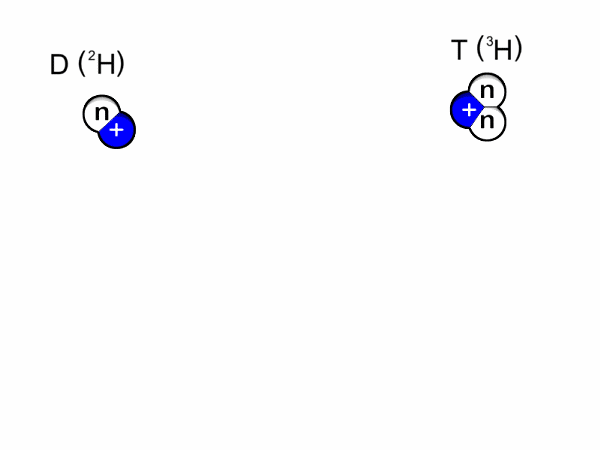
Nuclear decay, fission or the "weak force" that gives rise to radiation and electromagnetism.


Beta decay.

Neutron decay
Gravity or gravitational attraction which is the latent force of mass, matter's capacity to warp space and curve the universe.
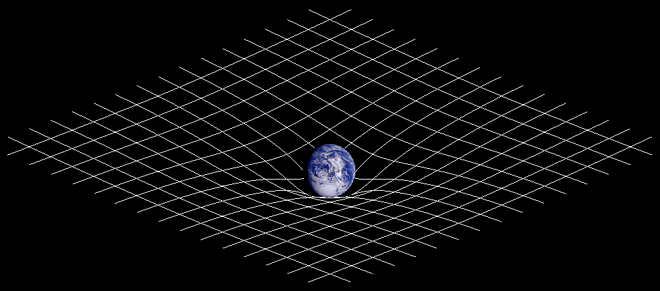
 |
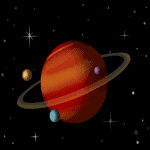 |
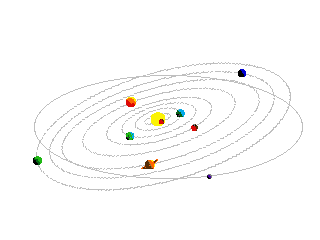 |
|
| The gravitational attractions acting across ever larger distances holding the cosmos together. | |||
Thermodynamics | Ecolacy | Culture | Ecological law | dialectic of inquiry |Numeracy | impotency | 3 universal forces
![]()
Tragedy of the Commons | Ecological Literacy | Folly as a Limit
This button below works as a navigational aid.
schedule | research Home | Atlas | site-map annotated | Ecology | laws | quick look
Science Index | Gene Analysis | Population Index | Global Warming Index | Nature Index | Research sites
Words' index | Terms | Glossary | Word webs | Basic vocabulary | Advanced Vocabulary | Antonyms | Synonyms
Writing | Interviews | Free Writing
Tragedy of the commons | Tic Tac Toe and game theory | Enclosure problem